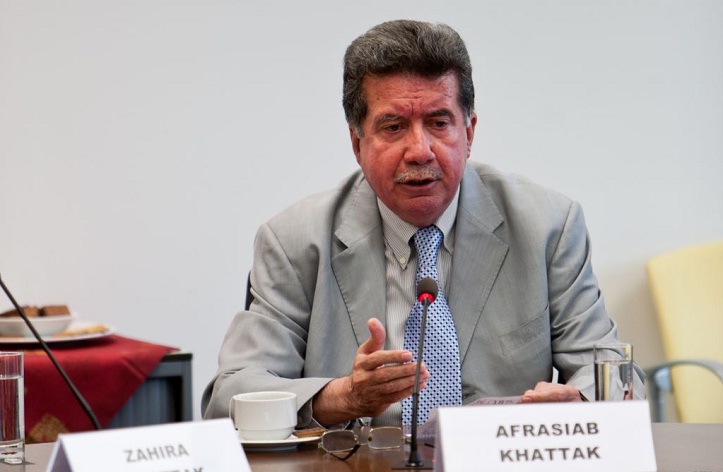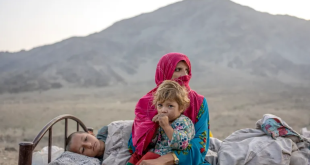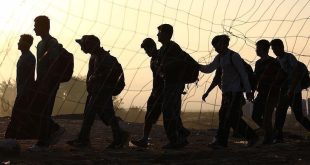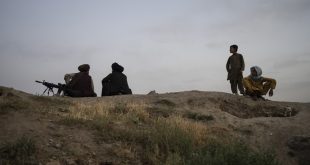As usual, it is not easy to choose news about events in Pakistan over the last one or two weeks for making comments. The deadly terrorist attack on a court premise in Shabqadar (Charsada), after a similarly bloody attack on Bacha Khan University in the same district some time back, and devastating attacks in Jalalabad and elsewhere on the western side of the Durand Line clearly show that Pashtuns remain to be in the eye of terrorist storm despite the 20 month old military operation of Zarb-e-Azb in FATA. The release of Shahbaz Taseer after remaining more than four years in the custody of his terrorist abductors is good news for all and sundry but his return has taken place in as mysterious circumstances as the kidnapping itself. Similarly it is also quite tempting to write about the apparent succumbing of Pakistan government to Saudi pressure for joining the anti Iran alliance despite the initial decision of our Parliament to refrain from taking sides in the sectarian polarisations of the Middle East. And the list goes on. But I have decided to write about two other pieces of news that are going to have far more significant repercussions for Pakistan and the entire region than anything else. First is the statement of Mr. Sartaj Aziz, advisor to the Prime Minister in foreign affairs, about the presence of the top leadership of Afghan Taliban in Pakistan for the last many decades and second is the information passed by General Nasir Khan Janjua, the National Security Advisor to his Indian counterpart about the threat of a terrorist attack emanating from Pakistan in the Indian state of Gujrat during a religious festival.
Sartaj Aziz’s statement about the presence of Afghan Taliban leadership in Pakistan creates hope that finally Pakistan is coming out of the mode of false denial. Pakistan’s Afghan policy and its various pronouncements in the past carried no credibility at all because of a glaring discrepancy between its words and actions. Since 1980 Pakistan has fought three undeclared wars in Afghanistan. The first war that started against the Soviet forces in 1980 continued till early 1992. But Pakistan was not alone in fighting this war. It was supposed to be the biggest covert operation of US against the Soviet Union. Other western countries and Arab Sheikdoms actively supported it activating the institution of Jihad in Islam that had remained dormant for many centuries before that. Pakistan denied its role while this war was going on, but soon after it ended it was not only formally owned by the government but books were written by different “Napoleons” taking credit for this war.
The second war in Afghanistan started in 1994 when Pakistan supported Taliban’s bid to defeat the former mujahideen and to conquer the whole of Afghanistan for implementing the Pakistan’s strategic depth policy. It continued up till 9/11. This phase of war was an open secret although formally not owned. But again Pakistan was not alone in fighting this proxy war through Taliban. Other countries like Iran, India and Russia supported the erstwhile Northern Alliance. The third stage of Pakistan’s Afghan war started in 2003 when Taliban regrouped in Pakistan for fighting against the ISAF forces in pursuit of Pakistan’s policy of strategic depth. Pakistan has been vehemently denying any role in this war which is continuing even today but General Musharraf, the former COAS and the former President of Pakistan, in a recent interview accepted the fact that Pakistan did support Taliban in their fight against the government of Hamid Karzai who was alleged by Musharraf to be anti Pakistan. Even after the beginning of Operation Zarb-e-Azb in June, 2014 both Prime Minister Nawaz Sharif and Army Chief General Raheel Sharif categorically stated that Afghan Taliban will also not be spared during this operation but it is quite evident by now that Pakistan still regards Afghan Taliban to be its strategic assets and they were only relocated during the operation. How can we blame Afghans for doubting our government’s statements about the best intentions for peace in presence of such a dubious record?
Be that as it may, the question is that after public confessions about the presence of Afghan Taliban on its territory will Pakistan take further steps to take this policy to a logical end? For example, will Pakistan take some responsibility for the actions of Afghan Taliban? Is there a timeline for the existence of sanctuaries of Afghan Taliban in Pakistan? Has Pakistan any plans for ultimately reconsidering its relationship with Taliban as in its presence Pakistan’s claims about giving up the policy of so called strategic depth has a hollow ring? These are significant questions and only the nature of their answer can decide as to whether Pakistan remains part of the problem or becomes part of the solution in efforts for bringing peace in Afghanistan.
Equally important, if not more important, is the sharing of intelligence with India about the threat of a possible terrorist attack in India originating from Pakistan. It is for the first time that the government of Pakistan has taken such a bold step. We know that the elected prime ministers in the past have been labelled as a security threat for even raising just the idea of security cooperation with India against the common terrorist threat. One hopes India will also reciprocate the bold Pakistani gesture to build a relationship of trust as it takes two to have a tango. But we also know that warning neighbours about the Pakistan based terrorist threat is a mere first step. Dismantling factories of terror in the country is a must for internal and regional security. Pakistan needs to get rid of the so-called strategic assets which have literally become strategic liabilities. Ending false denials is a bold and encouraging first step. But it needs to be followed by other clear steps for rooting out terrorism. Terrorism of Taliban or other brands and CPEC can’t go together. TAPI will also require security in the region. Regional trade, connectivity and economic cooperation can’t be indefinitely delayed. Pakistan has to make courageous choices for the peaceful and bright future of its own people.
(Afrasiab Khattak is a retired Senator and an analyst of regional affairs)
 Afghanistan Times
Afghanistan Times




